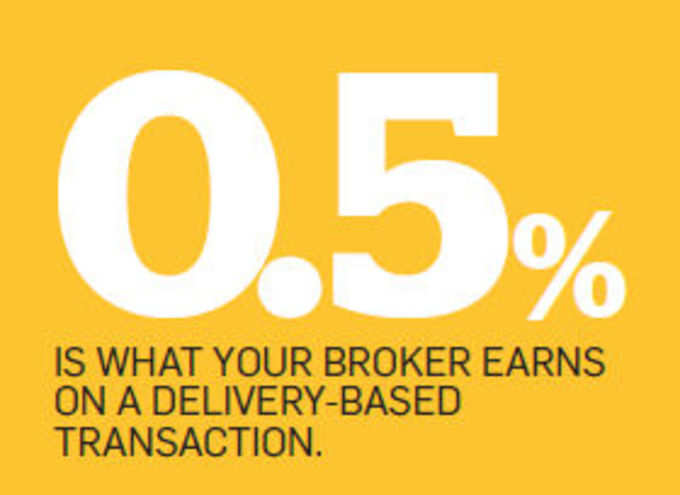
When Delhi-based Shyam Sundar was hospitalised this year, his wife received several calls from the relationship manager of his
This horror story has a somewhat happy ending. Sundar complained to the broking house, but they claimed he had authorised the transactions. An adamant Sundar demanded proof and threatened to complain to the Securities and Exchange Board of India (
Sundar won because he had an airtight case. The
DON’T SIGN AWAY YOUR RIGHTS
The first pitfall comes at the time of opening a trading account with a broker. You are given a lengthy application form and a voluminous agreement booklet with clauses in small print. Very few investors have the patience to go through the fine print or the ability to decipher the legalese. The relationship manager helpfully puts crosses at the places you need to sign on the agreement. Do so without reading the clauses and you could be headed for disaster.
What should you do?
Take time to go through the form and the agreement. In particular, pay attention to the power of
These new rules curtailed some of the actions that a broker could take on your behalf. Even so, a broker can transfer shares sold by you to the stock exchange, pledge
Some investors blindly sign on the form with a brokerage firm and give PoA for moving funds from their bank accounts, whenever required. They do so because it is very convenient. When they place orders on phone, the money automatically moves from their
The broker cannot execute trades without the client’s consent or transfer funds from his bank account to conduct transactions with another broker. He cannot also transfer stocks for offmarket trades or merge the balance from other accounts to nullify debit in any other trading account.
DON’T CHURN AND BURN
Once you sign up as a customer, the stock broker will start bombarding you with phone calls, stock recommendations and SMSes, all of which will urge you to buy this stock or sell that one. The tempo rises when the markets are on the upswing. “If you don’t buy now, you could miss out on a multi-bagger opportunity,” your broker will tell you.
What should you do?
When you buy a mutual fund, your money is invested across a basket of well-chosen stocks. You can be sure the
 Similarly, when the broker recommends a sale, find out whether the company’s fundamentals have been irreparably damaged. Or has the stock become over-valued? Don’t let your broker force you to take buy and sell decisions.
Similarly, when the broker recommends a sale, find out whether the company’s fundamentals have been irreparably damaged. Or has the stock become over-valued? Don’t let your broker force you to take buy and sell decisions.It’s often said that if your stock portfolio can beat a mutual fund or the broader market, you are in the wrong profession. Check the returns from your stock investment. “If, after a year or so, you find that your direct investment portfolio has underperformed a broader index, such as the
DON’T BE LURED INTO THE F&O TRAP
It’s easy to lure clients into this financial equivalent of a minefield. Relationship managers of brokerage houses tell stories of how they have made fabulous sums of money for clients by trading in F&O. Customers often give consent to the relationship manager to trade on their behalf. More often than not, losses follow and the customer is left holding the can.
What should you do?
 Derivatives are essentially meant for hedging and should have no place in the small investor’s portfolio. Nip the problem in the bud and don’t opt for trading in the derivative segment when you fill up the account opening form. Says Kunal Pawaskar, head of Capital Orbit, a Mumbai-based investor education firm: “Novice investors who don’t understand derivatives should not opt for this segment at all.”
Derivatives are essentially meant for hedging and should have no place in the small investor’s portfolio. Nip the problem in the bud and don’t opt for trading in the derivative segment when you fill up the account opening form. Says Kunal Pawaskar, head of Capital Orbit, a Mumbai-based investor education firm: “Novice investors who don’t understand derivatives should not opt for this segment at all.”If you have already signed up for investing in the F&O segment, avoid the temptation to trade in it. While you can indeed make lots of money in this space, you can also incur steep losses. Don’t get swayed by the relationship manager’s promises to earn big money. Under no circumstance should you give him the authorisation to trade in F&Os on your behalf. Keep a close eye on all the SMSes and e-mails from your broker (alerts to customers after every transaction have become mandatory).
Besides the brokerage commissions, another source from which brokers make money is by getting you to engage in margin trading. Under this arrangement, the broker lends you money to trade against the stocks lying in your account. Like F&O, margin trading is also a leveraged position and should be avoided by retail investors. If the stock drops, you lose on two counts: on the value and the interest that you will have to pay.
Brokerage houses regularly come out with reports on stocks. Before you base your decision on these reports, keep in mind that the
What should you do?
Should you then rely on brokerage house reports? Yes, but with a few caveats. Gathering information on a company is difficult. You may read its annual reports and track reports on it in the business media. Nonetheless, you may miss out on crucial information because the management only reveals such information to analysts.
Read brokerage reports, but not from just one brokerage house. See what different analysts have to say about a company’s fundamentals. When it comes to assessment of forward earnings, valuation and target price, make your own judgement.
Dhawan says one should not consider only the firm’s growth prospects highlighted in the report. “Pay equal attention to the risk factors,” he adds. Many reports also carry a history of past recommendations. See how you would have fared if you had acted upon them.
Do not blindly follow the broking house’s buy and sell calls. In fact, if you decide to be a buyand-hold investor, who holds stocks for at least three years, you will cut out much of the noise that emanates from brokerages.
“There are very few such firms because research is costly and most investors are reluctant to pay for it,” he adds. Canadabased Veritas is one example of an independent research firm.
ENSURE TRADING AND BROKING ARE SEPARATE
Brokerage houses employ traders, who use the firm’s capital to trade in the stock markets. This is called proprietary trading. Firms also trade on their clients’ behalf. Typically, brokerage firms are required to maintain separate books for their proprietary trades and the ones they conduct on their clients’ behalf. Sometimes, however, the firewall breaks down. Traders use clients’ money to trade. When they sustain losses, not only does their firm suffer, but the clients, who never authorised these trades, also take a hit.
What should you do?
You may make enquiries at the brokerage house. In all likelihood, the firm will fob you off with replies to the effect that the separation of proprietary trading and client trading is treated as sacrosanct at their firm.
A better way of avoiding falling prey to this misuse is not to keep excess money in your brokerage account. Transfer money from your savings account to your brokerage account just before a purchase. If you have sold stocks and don’t intend to use the money to buy another set, don’t leave the money lying in the account. Have it transferred to your savings account.
Step 1: You place order to buy or sell stocks.
Step 2: Order executed.
Step 3: Stocks or cash credited to trading account. (Could be misused by broker for unauthorised trading.)
Step 4: Transfer from trading account to demat or bank account.
How to seek redressal
Stock exchanges offer a grievance redressal mechanism. An Investment Protection Committee looks into complaints from investors, and if the charges are proved correct, investors are reimbursed from an
However, you need to be aware of a few things. “Investors often lose out because ignorance is not really protected under the law. If you have signed off your rights, and subsequently get cheated, you may not get protection. Only if you can establish that there has been a fraud or malpractice will you get protection,” says Uma Shashikant, managing director, Centre for Investment Education and Learning.
Find out who the grievance redressal authority at the stock exchange is. Meet the person and explain your case. Submit all the documentary evidence you have. If he thinks that prima facie there is a case, he will admit it.
On the flip side, the adjudication and grievance redressal process can be long drawn. If the stock exchange does not give you redressal, you can escalate the matter to Sebi.
Do you have a complaint against a broker?
Visit Sebi’s Scores (Sebi Complaints Redress System) website to file your complaint online.
1) Apprise your broker of your grievance.
2) If the response is not satisfactory, tell him you will complain to Sebi.
3) The Sebi threat usually works. If he doesn’t agree, lodge a complaint online on the Scores at www. scores.gov.in.
4) Scan the relevant documents and upload them on this website.
5) Sebi forwards your complaint to the concerned brokerage firm.
6) The firm must reply to your complaint within 30 days.
7) You can track the progress on your complaint on the website (click on ‘View Complaint Status’ button on the main page).
8) If the brokerage firm does not reply to your complaint within 30 days, the matter gets passed on to a
9) Scores also has a helpline: 18002667575.